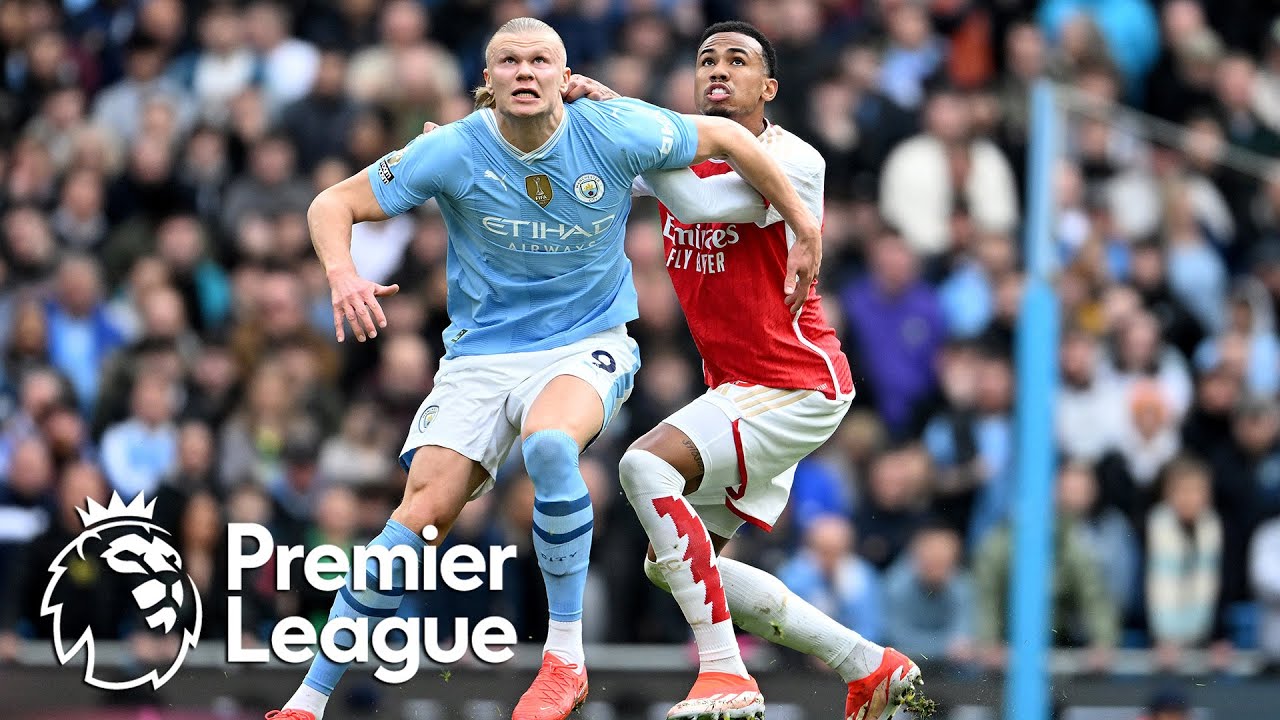
In the grand theatre of Premier League football, some fixtures are pre-ordained as clashes of titans, strategic duels where every pass, every tackle, and every substitution is dissected with surgical precision. The recent encounter between Arsenal and Manchester City was precisely that, yet it delivered a narrative twist few could have predicted: a late, dramatic equalizer for the Gunners, forcing Pep Guardiola’s usually expansive City into an uncharacteristic, almost desperate, defensive crouch.
A Conservative Opening: Arsenal`s Blunt Instrument
From the outset, the tactical blackboard seemed to dictate a certain caution from Arsenal. Mikel Arteta, often lauded for his strategic acumen, deployed a midfield trio featuring Merino, Declan Rice, and Martin Zubimendi. While robust and defensively astute, this configuration, as history often reminds us, tends to err on the side of solidity over creative flair. It was a setup that, for a significant portion of the first half, rendered Arsenal a blunt instrument against City`s well-drilled lines. The attacking impetus, particularly in the final third, felt stifled, lacking the audacious penetration needed to genuinely trouble a team of City`s caliber.
City, ever the predators, capitalized on this early hesitation. Following a momentary lapse, Erling Haaland, the league`s perennial goal-threat, found the net. This opener, arriving with an almost casual inevitability, only deepened Arsenal`s tactical conundrum. For a spell, the Gunners appeared shaken, struggling to regain a foothold in a game they desperately needed to dictate. Shots on target were a scarcity, and meaningful incursions into City`s defensive territory were even rarer. It was an opening act that, to the neutral observer, felt more like a prelude to another City triumph than a battle of equals.
Guardiola`s Uncharacteristic Retreat: A Giant Hunkers Down
Yet, the beauty of football lies in its unpredictability. As the second half unfolded, a truly peculiar sight began to emerge: Manchester City, the very embodiment of attacking dominance and intricate passing, started to retreat. The masters of possession football found themselves conceding ground, relinquishing their customary control, and, dare one say, suffering. With a lead to protect and, perhaps, the lingering fatigue from a demanding midweek European fixture against a 10-man Napoli taking its toll on an unchanged lineup, City opted for an approach typically reserved for underdogs attempting to cling to a slender advantage.
Pep Guardiola, a man whose teams are famed for their relentless pressing and suffocating possession, found himself deploying a formation that, at times, resembled a defensive blockade. His substitutions were designed not to unleash further attacking prowess but to add “ballast” to midfield, to protect. This wasn`t the City we`ve grown accustomed to; this was a pragmatic, almost reactive City, forced to defend deep and absorb pressure. It was an intriguing tactical pivot, a tacit admission from the Spaniard himself that “sometimes you have to defend because the opponent is better.” An ironic twist, indeed, considering the widely held perception of these two giants.
Arteta`s Answer: The `Finishers` Turn the Tide
As City retreated, Arsenal, slowly but surely, found their rhythm. This resurgence wasn`t solely down to a sudden tactical awakening from the initial eleven, but largely due to the tactical masterstroke from Arteta: the introduction of his “finishers.” Bukayo Saka and Eberechi Eze, brought on at half-time, injected an immediate and palpable urgency into Arsenal`s attack. Saka, even with limited fitness, offered an upgrade in directness, while Eze brought a purposeful guile to the right eight position. His ability to receive the ball, turn, and drive forward immediately shifted the momentum, providing the creative spark the midfield had so conspicuously lacked.
The impact of these substitutes was undeniable. The tempo increased, the passes found their mark with greater precision, and City`s defensive resolve was tested more rigorously. It was a testament to the depth of Arteta`s squad and his ability to make game-changing alterations when the initial plan faltered. This strategic shift culminated in the decisive moment: Eze, finding space, delivered a brilliant lofted through ball. Gabriel Martinelli, another “impactor” from the bench, met it with a smart first touch and a composed finish over the onrushing Gianluigi Donnarumma. The equalizer was not just a goal; it was the culmination of sustained pressure, a testament to Arsenal`s resilience, and a poignant moment of poetic justice.
Beyond the Scoreline: A Strategic Draw with Profound Implications
The 1-1 draw felt like more than just a point gained for Arsenal. For Guardiola, it echoed a familiar refrain: “It`s a pity but it`s football, right? Last season we equalized in the last minute at the Etihad, today they did it in the last minute.” Indeed, the wheel of fortune had turned, offering Arsenal a taste of what they had endured. While Arteta might have downplayed the “revenge” narrative, the emotional resonance for the Gunners` faithful was undeniable.
This match served as a crucial lesson for both sides. For Arsenal, it highlighted the formidable power of their substitutes and the importance of adapting tactically. While the initial conservative setup might have stifled their creativity, the ability to pivot and unleash game-changers showcased a maturity that bodes well for their title aspirations. For Manchester City, it was a rare glimpse into their vulnerability, a reminder that even the most dominant teams can be pushed onto the back foot, especially when fatigue sets in. This draw was a tactical chess match where the unexpected move—City`s retreat—was met with an equally decisive counter—Arsenal`s “finishers.” The league title race, it seems, has just gained another layer of intrigue.











